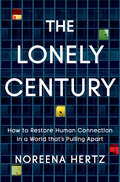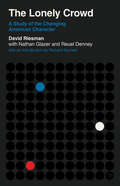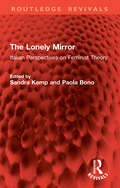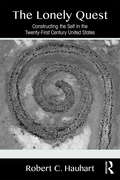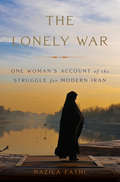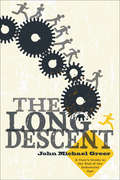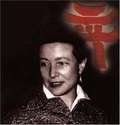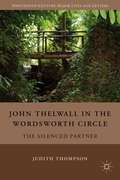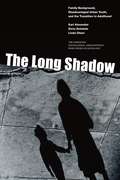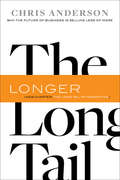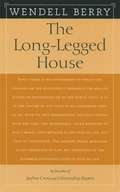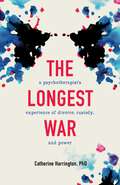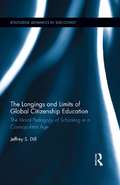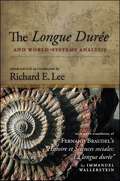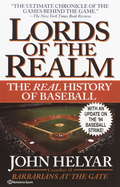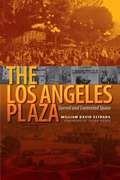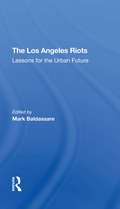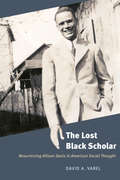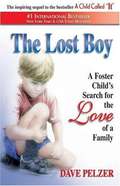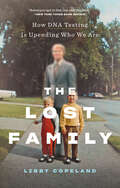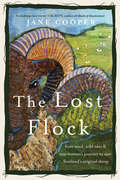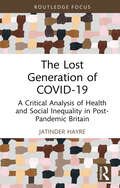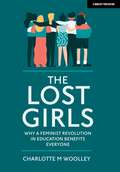- Table View
- List View
The Lonely Century: How to Restore Human Connection in a World That's Pulling Apart
by Noreena HertzA bold, hopeful, and thought-provoking account by &“one of the world&’s leading thinkers&” (The Observer) of how we built a lonely world, how the pandemic accelerated the problem, and what we must do to come together again &“A compelling vision for how we can bridge our many divides at this time of great change and disruption.&”—Arianna Huffington, founder and CEO of Thrive Global NAMED ONE OF THE BEST BOOKS OF THE YEAR BY WIRED (UK) AND THE DAILY TELEGRAPHLoneliness has become the defining condition of the twenty-first century. It is damaging our health, our wealth, and our happiness and even threatening our democracy. Never has it been more pervasive or more widespread, but never has there been more that we can do about it. Even before a global pandemic introduced us to terms like &“social distancing,&” the fabric of community was unraveling and our personal relationships were under threat. And technology isn&’t the sole culprit. Equally to blame are the dismantling of civic institutions, the radical reorganization of the workplace, the mass migration to cities, and decades of neoliberal policies that have placed self-interest above the collective good.This is not merely a mental health crisis. Loneliness increases our risk of heart disease, cancer, and dementia. Statistically, it&’s as bad for our health as smoking fifteen cigarettes a day. It&’s also an economic crisis, costing us billions annually. And it&’s a political crisis, as feelings of marginalization fuel divisiveness and extremism around the world. But it&’s also a crisis we have the power to solve.Combining a decade of research with firsthand reporting, Noreena Hertz takes us from a &“how to read a face&” class at an Ivy League university to isolated remote workers in London during lockdown, from &“renting a friend&” in Manhattan to nursing home residents knitting bonnets for their robot caregivers in Japan.Offering bold solutions ranging from compassionate AI to innovative models for urban living to new ways of reinvigorating our neighborhoods and reconciling our differences, The Lonely Century offers a hopeful and empowering vision for how to heal our fractured communities and restore connection in our lives.
The Lonely Crowd: A Study of the Changing American Character (Veritas Paperbacks)
by Nathan Glazer David Riesman Reuel Denney&“One of the most important books of the twentieth century.&”—Gideon Lewis-Kraus, New Yorker Considered by many to be one of the most influential books of the twentieth century, The Lonely Crowd opened exciting new dimensions in our understanding of the problems confronting the individual in twentieth-century America. Richard Sennett&’s new introduction illuminates the ways in which Riesman&’s analysis of a middle class obsessed with how others lived still resonates in the age of social media. &“Indispensable reading for anyone who wishes to understand American society. After half a century, this book has lost none of its capacity to make sense of how we live.&”—Todd Gitlin
The Lonely Mirror: Italian Perspectives on Feminist Theory (Routledge Revivals)
by Sandra Kemp Paola BonoContributing to a lively dialogue with Anglo-American and French theorists, The Lonely Mirror (originally published in 1993) sets out to contextualize Italian feminist theory within the international debate. The essays vividly illuminate the specific character of Italian feminism as a political and intellectual movement and expose the differences between the more institutionalized nature of women’s studies in the United States and Britain. It will be of vital interest both to general and academic readers who want to explore some of the most vibrant developments in European feminism.
The Lonely Quest: Constructing the Self in the Twenty-First Century United States
by Robert C. HauhartToday the United States is a country divided along lines of gender, economic inequality, educational level, and political affiliation. Democrats typically select a different range of matters of serious public concern compared to Republicans. Many Americans describe difficulty in coming to terms with the demands placed on them in their work, communities, and personal lives and achieving satisfaction. The institutional crises that pervade our politics, economy, educational systems, and communities have inspired a contemporary crisis: a widespread inability for many to live as integrated, effective selves in the twenty-first century United States. Drawing on a wide range of historical and contemporary research, The Lonely Quest explores the dilemma of constructing the self in the U.S. today.
The Lonely War: One Woman's Account of the Struggle for Modern Iran
by Nazila FathiAs a nine-year-old Tehrani schoolgirl during the Iranian Revolution, Nazila Fathi watched her country change before her eyes. The revolutionaries--most of them poor, uneducated, and radicalized--seized jobs, housing, and positions of power, transforming Iranian society practically overnight. But this socioeconomic revolution had an unintended effect. As Fathi shows, the forces unleashed in 1979 inadvertently created a robust Iranian middle class, one that today hungers for more personal freedoms and a renewed relationship with the outside world. And unless an international confrontation allows Iranian leaders to justify an internal crackdown, this internal pressure for reform will soon set the country on a more stable track. In The Lonely War, Fathi describes Iran’s awakening alongside her own, revealing how moderates are retaking the country--and how foreign powers can aid their progress.
The Long Descent: A User's Guide to the End of the Industrial Age
by John Michael GreerThe author of Dark Age America shares a harrowing vision of the future and what you can do to take action and make change.Americans are expressing deep concern about US dependence on petroleum, rising energy prices and the threat of climate change. Unlike the energy crisis of the 1970s, however, there is a lurking fear that, now, the times are different, and the crisis may not easily be resolved.The Long Descent examines the basis of such fear through three core themes:Industrial society is following the same well-worn path that has led other civilizations into decline, a path involving a much slower and more complex transformation than the sudden catastrophes imagined by so many social critics today.The roots of the crisis lie in the cultural stories that shape the way we understand the world. Since problems cannot be solved with the same thinking that created them, these ways of thinking need to be replaced with others better suited to the needs of our time.It is too late for massive programs for top-down change; the change must come from individuals.Hope exists in actions that range from taking up a handicraft or adopting an “obsolete” technology, through planting an organic vegetable garden, taking charge of your own health care or spirituality, and building community.Focusing eloquently on constructive adaptation to massive change, this book will have wide appeal.Praise for The Long Descent“At once erudite and entertaining, Greer’s exploration of the dynamics of societal collapse couldn’t be more timely.” —Richard Heinberg, Senior Fellow, Post Carbon Institute, and author of The Party’s Over and Peak Everything“Candidates for public office, and the voters who elect them, should be required to read [Greer’s] accurate diagnosis of the terminal illness our fossil-energy subsidized industrial civilization has too long denied. He shows how stubborn belief in perpetual progress blinded us to the abyss toward which we were speeding and thus impeded wise preparation for our unavoidable descent into a deindustrial age. We must hope that the array of mitigating tools he prescribes may yet render that descent down the back side of Hubbert’s peak less devastating than it will be if we insistently claim a right to be prodigal in using this finite Earth.” —Willam R. Catton, Jr., author of Overshoot: The Ecological Basis of Revolutionary Change
The Long March: An Account of Modern China
by Simone De Beauvoir Austryn WainhouseAuthor of "The Second Sex", and one of the 20th century's most brilliant writers, Simone de Beauvoir turns her attention eastward to China and paints a masterly picture of that nation in modern times. Honest and detailed, it comes from de Beauvoir's personal journey through the country: "I have tried to evaluate all the knowledge gained at first-hand, by actually seeing places and talking with people", she said, poignantly, noting how the Chinese "are fighting hard to build a human world".
The Long Shadow of the British Empire: The Ongoing Legacies Of Race And Class In Zambia
by Juliette Bridgette Milner-ThorntonThis book explores the lived experiences of formerly colonized people in the privacy of their homes, communities, workplaces, and classrooms, and the associations created from these social interactions. It examines the centrality of gender and social identity in the formation of non-western people in the British Empire.
The Long Shadow: Family Background, Disadvantaged Urban Youth, and the Transition to Adulthood
by Doris Entwisle Karl Alexander Linda OlsonA volume in the American Sociological Association's Rose Series in Sociology West Baltimore stands out in the popular imagination as the quintessential “inner city”—gritty, run-down, and marred by drugs and gang violence. Indeed, with the collapse of manufacturing jobs in the 1970s, the area experienced a rapid onset of poverty and high unemployment, with few public resources available to alleviate economic distress. But in stark contrast to the image of a perpetual “urban underclass” depicted in television by shows like The Wire, sociologists Karl Alexander, Doris Entwisle, and Linda Olson present a more nuanced portrait of Baltimore’s inner city residents that employs important new research on the significance of early-life opportunities available to low-income populations. The Long Shadow focuses on children who grew up in west Baltimore neighborhoods and others like them throughout the city, tracing how their early lives in the inner city have affected their long-term well-being. Although research for this book was conducted in Baltimore, that city’s struggles with deindustrialization, white flight, and concentrated poverty were characteristic of most East Coast and Midwest manufacturing cities. The experience of Baltimore’s children who came of age during this era is mirrored in the experiences of urban children across the nation. For 25 years, the authors of The Long Shadow tracked the life progress of a group of almost 800 predominantly low-income Baltimore school children through the Beginning School Study Youth Panel (BSSYP). The study monitored the children’s transitions to young adulthood with special attention to how opportunities available to them as early as first grade shaped their socioeconomic status as adults. The authors’ fine-grained analysis confirms that the children who lived in more cohesive neighborhoods, had stronger families, and attended better schools tended to maintain a higher economic status later in life. As young adults, they held higher-income jobs and had achieved more personal milestones (such as marriage) than their lower-status counterparts. Differences in race and gender further stratified life opportunities for the Baltimore children. As one of the first studies to closely examine the outcomes of inner-city whites in addition to African Americans, data from the BSSYP shows that by adulthood, white men of lower status family background, despite attaining less education on average, were more likely to be employed than any other group in part due to family connections and long-standing racial biases in Baltimore’s industrial economy. Gender imbalances were also evident: the women, who were more likely to be working in low-wage service and clerical jobs, earned less than men. African American women were doubly disadvantaged insofar as they were less likely to be in a stable relationship than white women, and therefore less likely to benefit from a second income. Combining original interviews with Baltimore families, teachers, and other community members with the empirical data gathered from the authors’ groundbreaking research, The Long Shadow unravels the complex connections between socioeconomic origins and socioeconomic destinations to reveal a startling and much-needed examination of who succeeds and why.
The Long Tail: Why the Future of Business is Selling Less of More
by Chris AndersonWhat happens when the bottlenecks that stand between supply and demand in our culture go away and everything becomes available to everyone?"The Long Tail" is a powerful new force in our economy: the rise of the niche. As the cost of reaching consumers drops dramatically, our markets are shifting from a one-size-fits-all model of mass appeal to one of unlimited variety for unique tastes. From supermarket shelves to advertising agencies, the ability to offer vast choice is changing everything, and causing us to rethink where our markets lie and how to get to them. Unlimited selection is revealing truths about what consumers want and how they want to get it, from DVDs at Netflix to songs on iTunes to advertising on Google.However, this is not just a virtue of online marketplaces; it is an example of an entirely new economic model for business, one that is just beginning to show its power. After a century of obsessing over the few products at the head of the demand curve, the new economics of distribution allow us to turn our focus to the many more products in the tail, which collectively can create a new market as big as the one we already know.The Long Tail is really about the economics of abundance. New efficiencies in distribution, manufacturing, and marketing are essentially resetting the definition of what's commercially viable across the board. If the 20th century was about hits, the 21st will be equally about niches.
The Long-legged Horse
by Wendell BerryFirst published in 1969 and out of print for more than 25 years, this was Berry's first collection of essays, the inaugural work introducing many of the central issues that have occupied him over the course of his career.
The Longest War: A Psychotherapist's Experience of Divorce, Custody, and Power
by Catherine Harrington PhDAs a naive freshman, Catherine meets Walter, a senior and Big Man on Campus whose sophistication, confidence, and wealth both intimidate and excite her. A three-year absentee courtship follows, during which time the idea of Walt tethers Catherine to safety. She was programmed to marry someone like him, so she ignores the warning signs that they might not be a good match. Hoping to please her mother and seeking refuge from her fraught childhood, she marries and has children with him—but the marriage doesn’t last. Once divorced, Catherine finds herself in a war with Walt over money, and then over access to her children—and suddenly, she can no longer ignore her childhood trauma. The high stakes of her battle with her ex-husband forge her like steel, finding every vulnerability where she needs to heal. Gradually, she develops a backbone, relinquishes her trauma-induced, people-pleasing ways, and steps into her own power. Honest and unflinching, The Longest War reminds us that there’s always a way through when we access the courage within ourselves. No matter how painful life’s difficulties, they offer us the opportunity to heal ourselves and evolve into more open, loving, compassionate people. The choice is ours.
The Longings and Limits of Global Citizenship Education: The Moral Pedagogy of Schooling in a Cosmopolitan Age (Routledge Advances in Sociology #109)
by Jeffrey S. DillAs the world seemingly gets smaller and smaller, schools around the globe are focusing their attention on expanding the consciousness and competencies of their students to prepare them for the conditions of globalization. Global citizenship education is rapidly growing in popularity because it captures the longings of so many—to help make a world of prosperity, universal benevolence, and human rights in the midst of globalization’s varied processes of change. This book offers an empirical account from the perspective of teachers and classrooms, based on a qualitative study of ten secondary schools in the United States and Asia that explicitly focus on making global citizens. Global citizenship in these schools has two main elements, both global competencies (economic skills) and global consciousness (ethical orientations) that proponents hope will bring global prosperity and peace. However, many of the moral assumptions of global citizenship education are more complex and contradict these goals, and are just as likely to have the unintended consequence of reinforcing a more particular Western individualism. While not arguing against global citizenship education per se, the book argues that in its current forms it has significant limits that proponents have not yet acknowledged, which may very well undermine it in the long run.
The Longue Durée and World-Systems Analysis (SUNY series, Fernand Braudel Center Studies in Historical Social Science)
by Richard E. LeeIn his pathbreaking article "History and the Social Sciences: The Longue Durée," Fernand Braudel raised a call for the social sciences to overcome their disciplinary isolation from one another. Commemorating the fiftieth anniversary of the article's publication, the contributors to this volume do not just acknowledge their debt to the past; they also bear witness to how the crisis Braudel recognized a half century ago is no less of a crisis today. The contributions included here, from scholars in history, sociology, and geography, reflect the spirit and practice of the intellectual agenda espoused by Braudel, coming together around the concept of the longue durée. Indeed, they are evidence of how the groundbreaking research originally championed by Braudel has been carried forward in world-systems analysis for a more socially relevant understanding of the planet and its future possibilities. The book concludes with a new translation of Braudel's original article by famed sociologist Immanuel Wallerstein.
The Lords of the Realm: The Real History of Baseball
by John HelyarIn this fascinating, colorful chronicle -- based on hundreds of interviews and years of research and digging -- John Helyar brings to vivid life the extraordinary people and dramatic events that shaped America's favorite pastime, from the dead-ball days at the turn of the century through the great strike of 1994. Witness zealous Judge Landis banish eight players, including Shoeless Joe Jackson, after the infamous "Black Sox" scandal; the flamboyant A's owner Charlie Finley wheel and deal his star players, Vida Blue and Rollie Fingers, like a deck of cards; the hysterical bidding war of coveted free agent Catfish Hunter; the chain-smoking romantic, A. Bartlett Giamatti, locking horns with Pete Rose during his gambling days of summer; and much more. ... "The ultimate chronicle of the games behind the game." -- The New York Times Book Review.
The Los Angeles Plaza
by William David EstradaCity plazas worldwide are centers of cultural expression and artistic display. They are settings for everyday urban life where daily interactions, economic exchanges, and informal conversations occur, thereby creating a socially meaningful place at the core of a city. At the heart of historic Los Angeles, the Plaza represents a quintessential public space where real and imagined narratives overlap and provide as many questions as answers about the development of the city and what it means to be an Angeleno. The author, a social and cultural historian who specializes in nineteenth- and early twentieth-century Los Angeles, is well suited to explore the complex history and modern-day relevance of the Los Angeles Plaza. From its indigenous and colonial origins to the present day, Estrada explores the subject from an interdisciplinary and multiethnic perspective, delving into the pages of local newspapers, diaries and letters, and the personal memories of former and present Plaza residents, in order to examine the spatial and social dimensions of the Plaza over an extended period of time. The author contributes to the growing historiography of Los Angeles by providing a groundbreaking analysis of the original core of the city that covers a long span of time, space, and social relations. He examines the impact of change on the lives of ordinary people in a specific place, and how this change reflects the larger story of the city.
The Los Angeles Riots: Lessons For The Urban Future
by Edgar W Butler Mark Baldassare David O Sears Peter A MorrisonThe Los Angeles riots in the Spring of 1992 were among the most violent and destructive events in twentieth-century urban America. This collection of original essays by leading urban experts offers the first comprehensive analysis of the unrest that took place after a jury acquitted the police officers who were accused of using excessive force in t
The Lost Black Scholar: Resurrecting Allison Davis in American Social Thought
by David A. VarelAllison Davis (1902–83), a preeminent black scholar and social science pioneer, is perhaps best known for his groundbreaking investigations into inequality, Jim Crow America, and the cultural biases of intelligence testing. Davis, one of America’s first black anthropologists and the first tenured African American professor at a predominantly white university, produced work that had tangible and lasting effects on public policy, including contributions to Brown v. Board of Education, the federal Head Start program, and school testing practices. Yet Davis remains largely absent from the historical record. For someone who generated such an extensive body of work this marginalization is particularly surprising. But it is also revelatory. In The Lost Black Scholar, David A. Varel tells Davis’s compelling story, showing how a combination of institutional racism, disciplinary eclecticism, and iconoclastic thinking effectively sidelined him as an intellectual. A close look at Davis’s career sheds light not only on the racial politics of the academy but also the costs of being an innovator outside of the mainstream. Equally important, Varel argues that Davis exemplifies how black scholars led the way in advancing American social thought. Even though he was rarely acknowledged for it, Davis refuted scientific racism and laid bare the environmental roots of human difference more deftly than most of his white peers, by pushing social science in bold new directions. Varel shows how Davis effectively helped to lay the groundwork for the civil rights movement.
The Lost Boy: A Foster Child's Search for the Love of a Family
by Dave PelzerImagine a young boy who has never had a loving home. His only possessions are the old, torn clothes he carries in a paper bag. The only world he knows is one of isolation and fear. Although others had rescued this boy from his abusive alcoholic mother, his real hurt is just beginning -- he has no place to call home. This is Dave Pelzer's long-awaited sequel to A Child Called "It". In The Lost Boy, he answers questions and reveals new adventures through the compelling story of his life as an adolescent. Now considered an F-Child (Foster Child), Dave is moved in and out of five different homes. He suffers shame and experiences resentment from those who feel that all foster kids are trouble and unworthy of being loved just because they are not part of a "real" family. Tears, laughter, devastation and hope create the journey of this little lost boy who searches desperately for just one thing -- the love of a family.
The Lost Family: How DNA Testing Is Upending Who We Are
by Libby Copeland“A fascinating exploration of the mysteries ignited by DNA genealogy testing—from the intensely personal and concrete to the existential and unsolvable.” —Tana French, New York Times–bestselling author You swab your cheek or spit in a vial, then send it away to a lab somewhere. Weeks later you get a report that might tell you where your ancestors came from or if you carry certain genetic risks. Or, the report could reveal a long-buried family secret that upends your entire sense of identity. Soon a lark becomes an obsession, a relentless drive to find answers to questions at the core of your being, like “Who am I?” and “Where did I come from?” Welcome to the age of home genetic testing.In The Lost Family, journalist Libby Copeland investigates what happens when we embark on a vast social experiment with little understanding of the ramifications. She explores the culture of genealogy buffs, the science of DNA, and the business of companies like Ancestry and 23andMe, all while tracing the story of one woman, her unusual results, and a relentless methodical drive for answers that becomes a thoroughly modern genetic detective story. Gripping and masterfully told, The Lost Family is a spectacular book on a big, timely subject.“An urgently necessary, powerful book that addresses one of the most complex social and bioethical issues of our time.” —Dani Shapiro, New York Times–bestselling author“Before you spit in that vial, read this book.” —The New York Times Book Review“Impeccably researched . . . up-to-the-minute science meets the philosophy of identity in a poignant, engaging debut.” —Kirkus Reviews (starred review)
The Lost Flock: Rare Wool, Wild Isles and One Woman’s Journey to Save Scotland’s Original Sheep
by Jane CooperThe Lost Flock is the story of the remarkable and rare little horned sheep, known as Orkney Boreray, and the wool-obsessed woman who moved to one of Scotland’s wildest islands to save them. It was Jane Cooper’s passion for knitting that led her to discover the world of rare-breed sheep and their wool. Through this, Jane uncovered the ‘Orkney Borerary’ – a unique group within the UK’s rarest breed of sheep, the Boreray, and one of the few surviving examples of primitive sheep in northern Europe. As her knowledge of this rarest of heritage breeds grew, she took the bold step to uproot her quiet suburban life in Newcastle and relocate to Orkney, embarking on a new adventure and life as farmer and shepherd. Jane was astonished to find that she was the sole custodian of this lost flock in the world, and so she began investigating their mysterious and ancient history, tracking down the origins of the Boreray breed and its significance to Scotland’s natural heritage. From Viking times to Highland crofts and nefarious research experiments in Edinburgh, this is a so-far untold real-life detective story. It is also the story of one woman’s relentless determination to ensure a future for her beloved sheep, and in doing so revealing their deep connection to the Scottish landscape. An unforgettable story of a heritage breed and the importance of its existence.
The Lost Generation of COVID-19: A Critical Analysis of Health and Social Inequality in Post-Pandemic Britain
by Jatinder HayreThe COVID-19 pandemic has wrought unparalleled disruption, altering the landscape of health and well-being for a generation. The Lost Generation of COVID-19 unveils the ways in which the crisis has deepened existing health disparities, casting a long shadow over young people’s futures.Set against the backdrop of austerity-induced cuts to UK public services, this book explores the social determinants of health, revealing how systemic neglect has been exacerbated by the pandemic’s relentless pressure. The analysis extends beyond individual hardships, illuminating the broader societal ramifications such as economic stagnation and social fragmentation. Yet, amidst the bleak landscape, the book offers a visionary perspective on the potential for transformative change. It posits that the pandemic serves as a catalyst for radical societal reform, advocating for a new economic paradigm anchored in equity and fairness. By addressing the root causes of health inequalities through innovative policy interventions and structural reforms, the author envisions a resilient and just society emerging from the shadows of the pandemic.Insightful and far-reaching, this book is an indispensable resource for students and scholars in the health sciences and political science, as well as for policymakers dedicated to these important issues.
The Lost German East
by Andrew DemshukA fifth of West Germany's post-1945 population consisted of ethnic German refugees expelled from Eastern Europe, a quarter of whom came from Silesia. As the richest territory lost inside Germany's interwar borders, Silesia was a leading objective for territorial revisionists, many of whom were themselves expellees. The Lost German East examines how and why millions of Silesian expellees came to terms with the loss of their homeland. Applying theories of memory and nostalgia, as well as recent studies on ethnic cleansing, Andrew Demshuk shows how, over time, most expellees came to recognize that the idealized world they mourned no longer existed. Revising the traditional view that most of those expelled sought a restoration of prewar borders so they could return to the east, Demshuk offers a new answer to the question of why, after decades of violent upheaval, peace and stability took root in West Germany during the tense early years of the Cold War.
The Lost Girls: Why a feminist revolution in education benefits everyone
by Charlotte WoolleyLife for girls is a battle of contrasting expectations, being told you should be 'empowered' but also be a 'good girl', putting others first but still striving for perfection yourself. This conflict, internalizing expectations of an impossible standard, has lead to an explosion in mental-health and anxiety-related disorders in young women. The traditional narrative of education feeds the perception that girls are good. They achieve, work hard, are co-operative. They achieve better grades. But where do these high achievers disappear to? They aren't becoming CEOs, politicians or social leaders. Women are still disproportionately the family carers and domestic managers. This book explores: * research around biological difference, and how our schools encode gendered expectations. * how our curricula can provide role-models as well as modes of thinking, valuing traditionally feminine traits as equal to masculine * using psychological approaches to develop girls' independence. * how school systems and leadership can model approaches to encourage all students to create a gender-balanced environment. With practical questions and suggestions at the end of each chapter, this book is a guide to the research and a tool to help teachers and leaders shape a genuinely empowering school experience for young women.
The Lost Girls: Why a feminist revolution in education benefits everyone
by Charlotte WoolleyLife for girls is a battle of contrasting expectations, being told you should be 'empowered' but also be a 'good girl', putting others first but still striving for perfection yourself. This conflict, internalizing expectations of an impossible standard, has lead to an explosion in mental-health and anxiety-related disorders in young women. The traditional narrative of education feeds the perception that girls are good. They achieve, work hard, are co-operative. They achieve better grades. But where do these high achievers disappear to? They aren't becoming CEOs, politicians or social leaders. Women are still disproportionately the family carers and domestic managers. This book explores: * research around biological difference, and how our schools encode gendered expectations. * how our curricula can provide role-models as well as modes of thinking, valuing traditionally feminine traits as equal to masculine * using psychological approaches to develop girls' independence. * how school systems and leadership can model approaches to encourage all students to create a gender-balanced environment. With practical questions and suggestions at the end of each chapter, this book is a guide to the research and a tool to help teachers and leaders shape a genuinely empowering school experience for young women.
